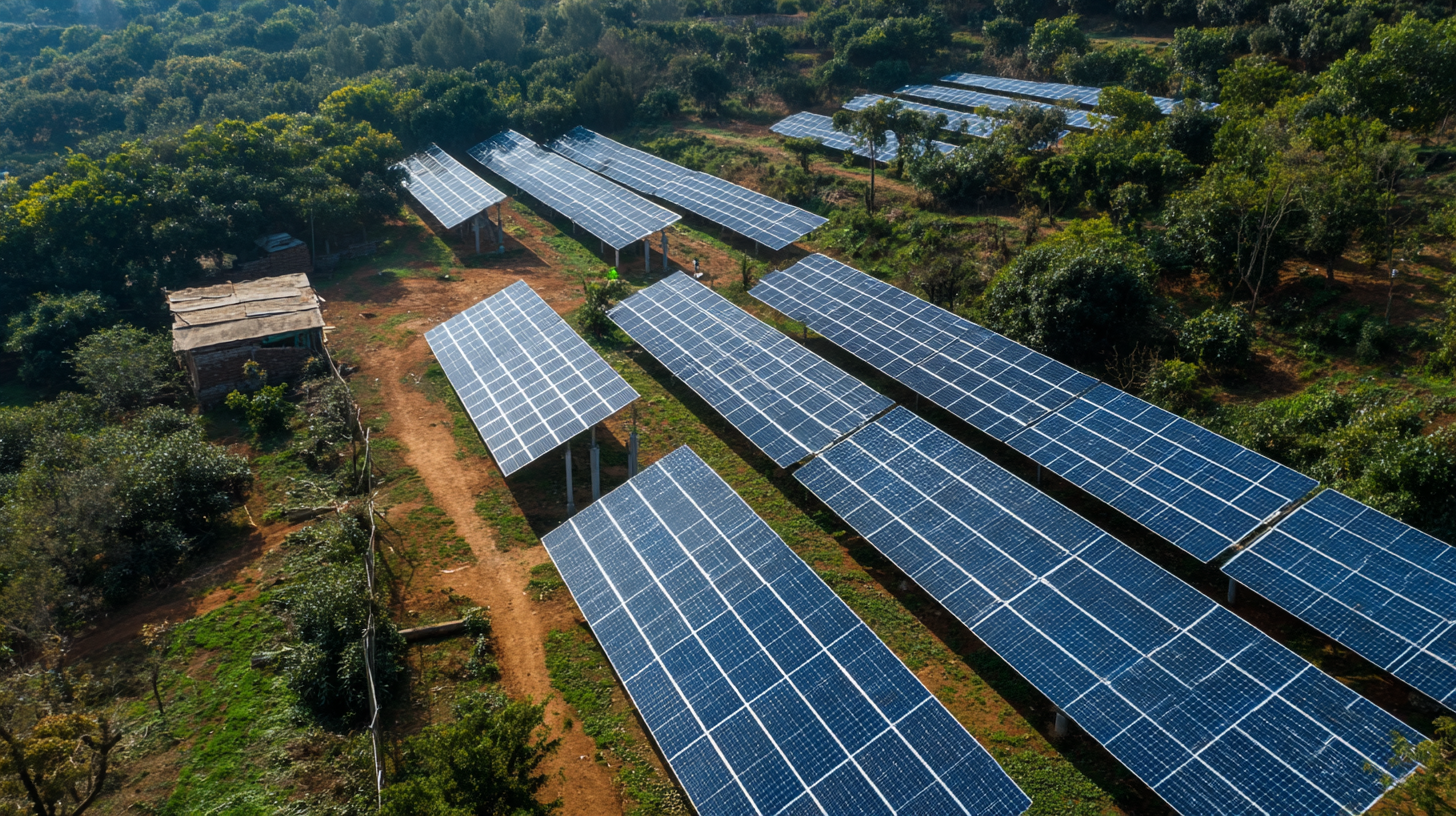ALL PRODUCTS
- Solar Panel
- Hybrid Inverter
- Lithium Battery
GSB SOLAR LITHIUM BATTERIES
- Gel Battery
- Solar Street Lights
- Pump Inverter
As the world grapples with the pressing challenges of climate change and economic instability, the potential of solar energy emerges as a powerful solution that intersects both environmental responsibility and economic opportunity. This renewable energy source, harnessed from the sun's abundant rays, not only offers a clean and sustainable alternative to fossil fuels but also holds the promise of invigorating local economies through job creation and technological innovation. By investing in solar energy, countries can reduce their carbon footprint, transition to greener energy practices, and stimulate economic growth simultaneously. This paper will explore the multifaceted benefits of solar energy, highlighting how its integration into our energy systems is crucial for combating climate change while fostering a resilient and prosperous economy.

Harnessing solar energy is increasingly recognized as a powerful solution in the fight against climate change, and several key technologies and innovations are driving this transition. According to a report by the International Energy Agency (IEA), solar photovoltaic (PV) systems accounted for over 25% of global electricity generation growth in 2022, making it one of the fastest-growing energy sources worldwide. Advances in solar panel efficiency, such as perovskite technology, have the potential to increase energy output significantly, with some studies indicating efficiencies could surpass 30% in the coming years.
Moreover, energy storage innovations, including lithium-ion batteries and emerging solid-state technologies, are essential for overcoming the intermittent nature of solar power. The IEA projects that energy storage capacity is expected to quadruple by 2030, enhancing the reliability of solar energy systems and making them more viable for widespread use. Additionally, the integration of smart grid technology facilitates seamless management of solar power supply, contributing further to economic growth by creating jobs and promoting energy independence. As nations ramp up their investments in solar energy, these technological advancements will play a critical role in achieving both climate action and sustainable economic development.

The rise of solar energy is not only a pivotal response to climate change but also a significant driver of economic growth, particularly in job creation and market expansion. According to recent industry reports, the global solar energy storage battery market is projected to escalate from $6.39 billion in 2025 to an impressive $19.1 billion by 2032, reflecting a compound annual growth rate (CAGR) of 16.94%. This robust growth is indicative of increasing investments in renewable energy and the urgency to transition towards sustainable energy sources.
One emerging area of opportunity is the solar rooftop installation market, which is expected to grow from a valuation of $14.56 billion in 2024 to $38.34 billion by 2032, with an anticipated CAGR of 11.7%. This surge presents not only an avenue for economic diversification but also for creating new job opportunities in installation, maintenance, and innovation within the green technology sector.
**Tips:** As businesses and individuals consider investing in solar technologies, they should be aware of the potential financial incentives and governmental support available for renewable energy projects. Engaging with certified installers and utilizing energy-efficient designs can amplify the benefits of solar energy investments. Furthermore, staying informed about market trends can provide strategic advantages in rapidly evolving energy landscapes.

The transition to solar energy represents a pivotal opportunity for sustainable development, and effective policies and incentives are critical to catalyzing this shift. Governments must implement financial incentives, such as tax credits and rebates, to make solar installations more affordable for individuals and businesses. By reducing the initial capital barrier, these measures encourage widespread adoption and harness the full potential of solar technology. Furthermore, streamlined permitting processes can facilitate quicker project deployment, allowing communities to benefit from clean energy sooner.
In addition to financial incentives, regulatory frameworks must be designed to support long-term solar investment. Establishing renewable energy mandates and feed-in tariffs can provide the certainty needed for investors, while driving innovation in solar technologies. Moreover, public-private partnerships can enhance funding opportunities, enabling more research and development in solar solutions. By creating an ecosystem that values sustainability and economic growth, policies that support solar energy adoption can not only combat climate change but also stimulate job creation and economic resilience in local communities.
Community engagement is crucial for the successful implementation of solar energy initiatives, as it fosters local ownership and support for renewable energy projects. By actively involving community members in the planning and execution of solar installations, local initiatives can harness the unique insights and needs of residents, ensuring that projects are tailored to benefit everyone. This collaboration not only empowers individuals but also builds trust among stakeholders, promoting a sense of shared responsibility for addressing climate change.
Moreover, engaging communities in solar projects can stimulate local economies by creating job opportunities and supporting small businesses. Local training programs can equip residents with the skills needed for solar installation and maintenance, thereby boosting workforce development. When communities invest in solar energy, they not only contribute to a sustainable future but also enhance their economic resilience. These initiatives can lead to reduced energy costs for households, increased local investments, and a shift toward a more self-sufficient energy model, ultimately paving the way for a greener economy.
As the world grapples with the dual challenges of climate change and economic instability, the educational strategies we employ to raise awareness about the benefits and usage of solar energy are more crucial than ever. According to the International Renewable Energy Agency (IRENA), solar energy could provide up to 30% of the world’s energy needs by 2030, significantly mitigating carbon emissions. By integrating solar education into school curriculums and community programs, we can empower the next generation with the knowledge and skills necessary to harness this abundant resource.
Moreover, a report from the U.S. Department of Energy highlights that investments in solar energy not only reduce greenhouse gas emissions but also stimulate economic growth. The solar industry employed over 250,000 workers in 2021, with job growth projected to increase by 20% annually. By promoting awareness of these employment opportunities and the financial benefits of solar adoption, we can encourage communities to engage with solar technologies and policies actively. Educational initiatives can illuminate the path toward a sustainable future, transforming both environmental awareness and local economies.






